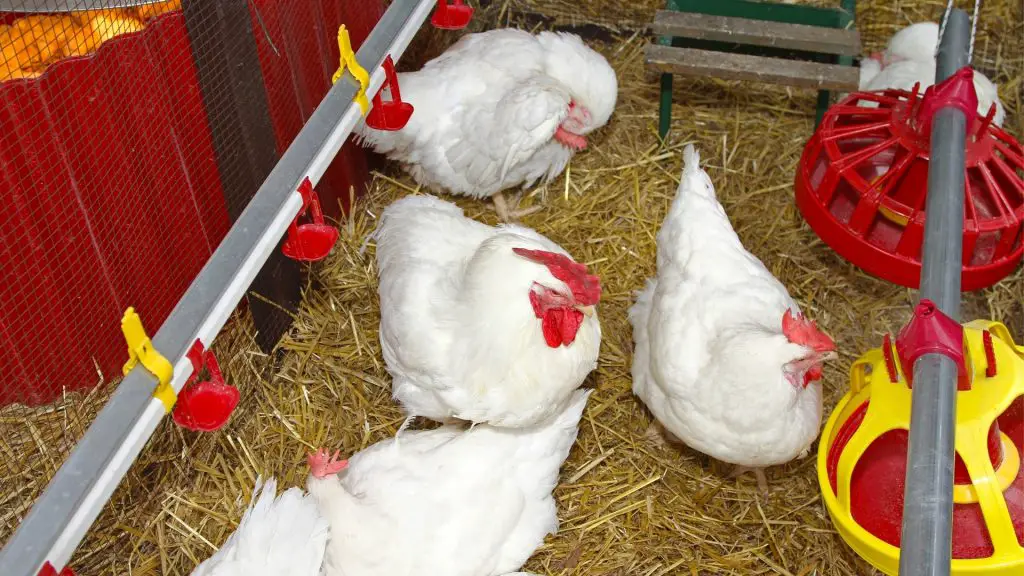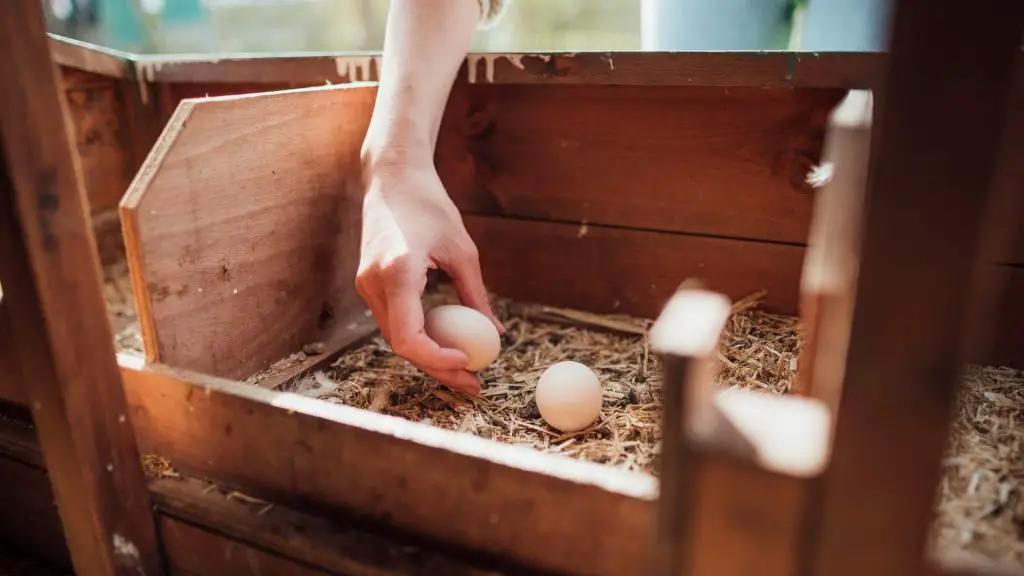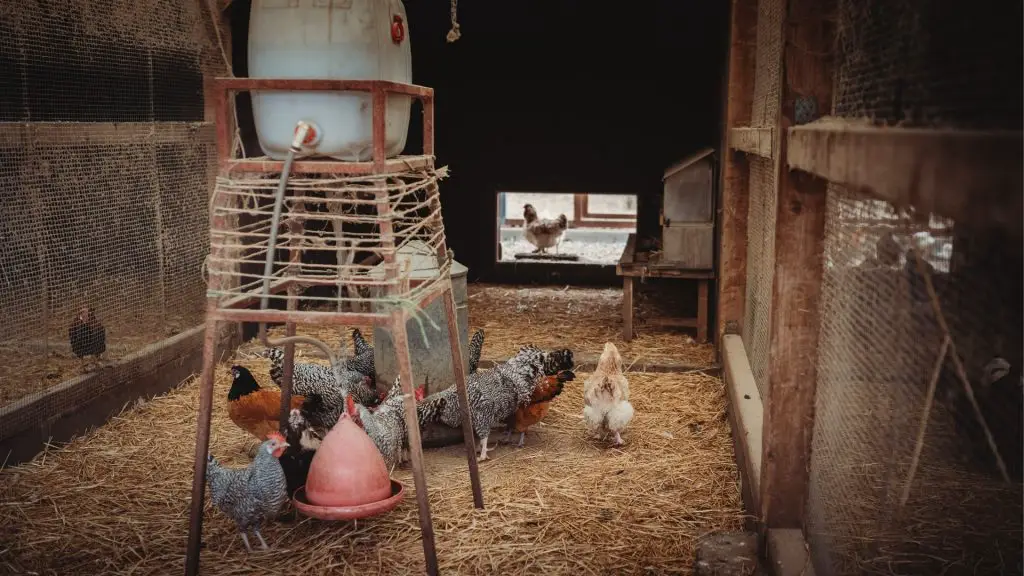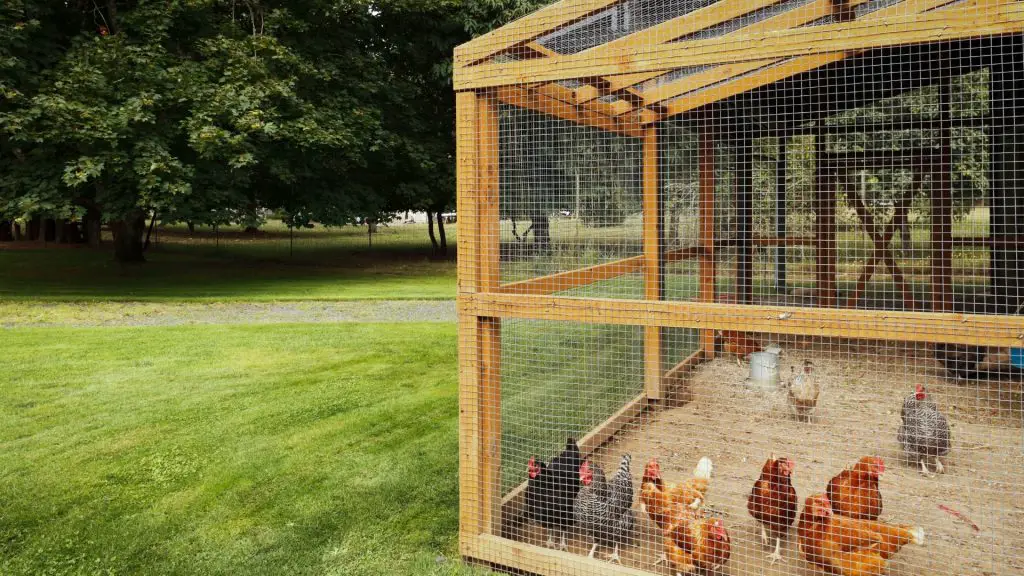Chickens aren’t the cleanest of birds, so you must clean your coop frequently if you want them to stay healthy and smell-free.
How to clean a chicken coop? To clean a chicken coop, remove droppings daily, dry clean it weekly, and thoroughly disinfect it at least once a year. By maintaining the cleanliness of your chicken coop, you ensure that you and your chickens stay healthy and productive and your coop smell-free.
This article will cover the entire coop cleaning process and give you some tips to prevent your coop from getting too dirty or smelly.
How Often to Clean Chicken Coop?

Frequently cleaning your poultry house is crucial if you want to keep harmful bacteria, insects, viruses, and parasites at bay.
Cleaning Chicken Coop
You should deep clean your chicken coop at least once a year, spot clean every day, and dry clean every week. Maintaining your chicken coop will help you keep it cleaner in the long run, preventing you and your chickens from getting sick. So, spot cleans your coop every day when you gather eggs.
Cleaning Chicken Coop’s Bedding
If you don’t replace the coop’s bedding every week, even if you keep up with spot cleaning, it will get wet and filthy, and it may harbor harmful insects.
- Change nesting material, bedding, and clean your roosting spot to prevent the spread of bacteria and bugs.
- When cleaning the bedding, rinse or scrub out feeding troughs and water containers since they can develop scale or harbor pests like mosquito larvae.
How to Spot Clean Your Chicken Coop?

Spot cleaning your chicken coop every day will keep your eggs spotless, your chickens healthy, and your poultry house smell-free.
Making your daily cleaning regimen a routine will keep your coop cleaner in the long run, and it’ll save you from having to change out the bedding more than once a week.
For the most effortless cleanup, use a gardening cultivator like this Fiskars Cultivator from Amazon, to scoop up the messy spots into a bucket.
- GARDENING ESSENTIAL: Heavy duty, ergonomic hand cultivator with...
- MAXIMUM POWER AND PRECISION: Cast-aluminum head and tines boost...
- LONG-LASTING AND RELIABLE: Polished aluminum tines stay sharp...
- QUALITY GARDEN TOOLS: Designed to help you cultivate a better...
- INCLUDES: 1 Fiskars Ergo Cultivator with hang hole; Lifetime...
To spot clean the coop:
- Remove littered bedding and chicken droppings from the enclosure.
- Rinse the waterers and refresh the water supply.
- Collect all eggs and remove droppings from the nesting boxes.
- Remove extra food from the feed boxes at night to prevent predators from entering the coop after dark.
How to Dry Clean Your Chicken Coop?
Dry cleaning is a weekly task that keeps the bedding fresh, the roosting bars clean, and the poultry house insect-free.
When dry cleaning, you should wear a filtering face mask for your safety. That way, you’ll be protected from inhaling ammonia and any potential bacteria in the bedding, such as salmonella.
To dry clean the coop:
- Remove cobwebs, spider webs, and dust.
- Clean the waterers and feeding containers with a mixture of vinegar and water.
- Scrape off the roosting bars to remove built-up chicken droppings.
- Replace the bedding in your nesting boxes.
- Use vinegar to wipe down walls, windows, and other hard surfaces in the coop.
How to Deep Clean and Disinfect Your Chicken Coop?
Deep cleaning and disinfecting your chicken coop is crucial if you want your chickens to stay healthy. Over time, droppings, bacteria, insects, and viruses build up on the floors and surfaces of your coop, exposing you and your poultry to disease and parasites.
That’s why you should deep clean and disinfect your coop at least once a year. Still, if you can, you should deep clean every 6 months to prevent anything harmful from building up.
To deep clean and disinfect the coop:
- Remove your chickens from the coop. Move your chickens from the enclosure while cleaning to keep them safe and out of the way. The cleaning process may take a day or two, so you might want to set up a temporary pen or shelter for them to live in while you clean.
- Protect yourself. When cleaning, wear safety gear such as goggles, waterproof gloves, waterproof shoes, and a filtering face mask to protect you from the ammonia and airborne bacteria in your coop.
- Remove and soak accessories. Remove anything you can clean separately, such as waterers, feeders, removable roosting poles, and other furnishings. Wipe these accessories and soak them with a vinegar and water solution.
- Clear the coop. Start by removing all bedding, feathers, eggs, and chicken feed from your enclosure with a shovel or rake.
- Soak. Use a low-pressure hose to soak the coop, paying attention to roosting areas, nesting boxes, and other areas that are heavily soiled.
- Scrub with a natural disinfectant. Use a stiff scrub brush and a natural disinfectant such as vinegar or baking soda to clean off the floors, walls, nesting boxes, roosting rods, windows, and every other area of your coop.
- Rinse. Rinse the enclosure with a high-pressure spray of water to remove all of the cleaning solution and debris. For the best results, start rinsing from the back of the coop and slowly work your way to the front, shooting all waste and disinfectant out of the coop’s door.
- Dry the coop. Before your chickens can come back inside, dry it. You can use a fan or leave the doors and windows open on a sunny day.
- Replace bedding and accessories. Once the coop is dry, replace accessories and bedding.
How to Keep Your Chicken Coop Dry?

To keep a chicken coop dry, you can:
- Place straw around your enclosure to absorb moisture.
- Lay a tarp over the coop floor to repel water.
- Cover your chicken run with roofing or a tap to keep the rain out.
- Ensure that your coop gets some sunlight.
- Repair holes or cracks in the structure using silicone caulk.
- Install a ventilation fan in your coop.
Do Chicken Coops Smell?
Chicken coops can start to smell bad if you manage them poorly. If you don’t clean your chicken coop regularly, it’ll have a pungent smell. Often, if you leave droppings in the enclosure for too long, it can smell like ammonia.
In addition, if you let the coop become too wet or humid, it can start to harbor mold or mildew. Left untreated, it could make the chickens sick and take over the poultry house, so keeping your coop dry and clean is crucial.
How to Keep Your Chicken Coop From Smelling?

Keeping your coop from smelling bad is simple as long as you clean it regularly and keep it well ventilated.
If you spot-clean the coop every day and dispose of the soiled bedding and droppings correctly, your coop won’t smell like bird feces.
In addition, if you keep air circulating through your coop using a window or open door in the daytime, mold and mildew won’t grow in the house. It can keep it from smelling musty.
What to Do When Your Chicken Coop Smells Like Ammonia?
If your chicken coop smells like ammonia, you need to deep-clean it immediately. High concentrations of ammonia are unhealthy for birds, and if left too long, your birds will suffer respiratory issues, sickness, and egg production setbacks.
If your coop smells like ammonia, remove your birds and disinfect it. In the future, you should keep the poultry house ventilated with windows, doors, or a coop ventilation fan to prevent ammonia buildup.

